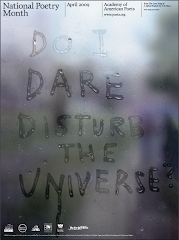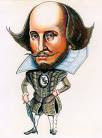Three reasons to read Virginia Woolf:
1. Just as the The Baseball Hall of Fame requires eligible players to have played ten years in the majors and be retired for five before being considered as an inductee, Virginia Woolf has passed the test of time. More than fifty years has slipped away since her death, so there can be no claim that the hype and prestige that surrounds her is simply the heat of the moment or temporary popularity. To put it simply and bluntly: she's legitimate.
2. She is one of the strongest writers of the twentieth century, and this transcends gender boundaries. She encompasses relevant questions and social analyses in her stories, as well as having mastered the art of writing. Despite personal preference, can that be denied?
3. Woolf provides a strong female voice, especially in a crucial time period where women were not always thought to be equal to men. She opened the door for others, such as Anne Sexton, Sylvia Plath, and many more to be able to share their stories.
Three reasons to read The Hours:
1. Having a basic knowledge of Virginia Woolf and/or Mrs. Dalloway, reading Cunningham's work will help shed light and understanding on Woolf; it's a much more "reader-friendly" book than Mrs. Dalloway, and can assist with the understanding of Woolf's major points.
2. The book serves as a great example of intertextuality and the brilliance of creating new characters and plot lines based off another's ideas. As Thoreau believed, read, then make it your own.
3. Since "like" is not a category of analysis, how about the ability of The Hours to help one enjoy Mrs. Dalloway more, upon reflection?
...which brings me to three reasons to read Mrs. Dalloway before The Hours:
1. You will gain a better appreciation for Mrs. Dalloway after finishing The Hours. Cunningham's many references to Woolf's threads (especially flowers, but time, birds, etc.) help to literally and figuratively tie the story in with Woolf's. The parallels between characters is shifted in The Hours, leaving the reader to figure out whuch of Cunningham's characters represents those of Virginia Woolf.
2. The Hours is the "easier" text to read, whereas if you read The Hours first, Mrs. Dalloway would surely seem quite difficult and confusing in comparison.
3. The idea of explaining the character of Mrs. Dalloway, Virginia Woolf herself, during the time she was writing Mrs. Dalloway, and her idea of a Mrs. Brown tie together the many ideas and sides to the one author. Essentially, we understand Virginia Woolf better by reading The Hours.
Subscribe to:
Post Comments (Atom)













I really enjoyed your baseball reference, it was a great way to depict hard work and commitment.
ReplyDeleteAGH! I just commented... and then my comment got eaten by the internet and is gone forever. Terrible. I'll try again.
ReplyDeleteErin,
Virginia Woolf IS legitimate! and she is certainly one of the most important authors of her era, for both the reasons that you've mentioned. I think many people's lives would benefit greatly if we all read a little bit of Woolf.
"The Hours" is definitely a prime example of intertextuality and the power that it can hold. And it certainly helps to address Woolf's issues in a way that modern readers can relate to much more easily than they can to "Mrs. Dalloway."
I think you're right that reading "The Hours" not only helps us understand "Mrs. Dalloway" but also helps us understand Woolf... which is fitting because she helped us understand humanity...
Abby
I agree with you about "The Hours" coming first. I'm a bit biased because I saw the film on my own separate time, but even that helped me SO much with understanding "Mrs. Dalloway!"
ReplyDeletevery interesting....aps...imaginative and thorough...
ReplyDeleteI enjoyed your baseball comment, like Babe Ruth her accomplishments will be kept forever in the writers hall of fame. (Does one exist?)
ReplyDelete